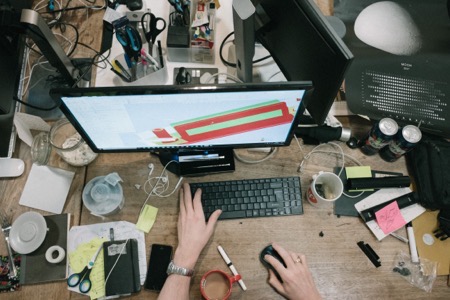
Despite the widespread belief that multitasking is the best way to maximize our outputs, only 2.5% of us are actually proficient at it. The human brain isn’t made to constantly switch between areas of focus, which can lead to more work being done at a lower level of quality in the long run. The cost of multitasking is high. While it’s not realistic to imagine a world without multitasking, taking the time to understand its true impact on productivity may help you mitigate losses in the long run.
Join ABC Leadership Coaching to learn more about how to be productive without multitasking and to stop paying the cost of multitasking.
Here are three reasons why you should consider joining ABC Leadership Coaching to help you STOP multitasking and become a more productive leader:
-The coaching will help you understand the myths and realities of multitasking.
-You will learn how to better manage your time and priorities.
-The coaching will help you focus on one task at a time, increasing your productivity and quality of work.
Multitasking Types
If you’re looking to be more productive, it might be time to stop multitasking. Multitasking can actually have a lot more meaning than you expect, and there are three types of multitasking:
Performing Two or More Tasks Simultaneously – the basic definition which could be anything from texting while driving to finishing off a report during a meeting
Switching Tasks Without Completing Work – a priority change where you have to drop something you were working on to start something else immediately
Performing Two or More Tasks in Rapid Succession – not taking a break between tasks, even if it doesn’t feel like multitasking it is
Clara Dunbar, a business writer at Elite assignment help and Revieweal, points out “All of these may feel like they are very different, but at the core, they are doing the same thing – increasing mental fatigue and reducing your focus on your work.”
Multitasking Personalities
Now we have a broad view of the types of multitasking, it’s worth having a look at the four main personalities of multitasking and what to look out for in ourselves:
- Approach-Oriented or Reward-Focused – someone focussed on the potential rewards of multi-tasking and the benefits it affords
- High-Sensation Seekers – those who need constant stimulation that can occur with the novelty of starting a new task
- Belief You’re in the 2.5% – someone who thinks their abilities in multitasking are better than they are
- Trouble Focusing – those who struggle with distraction and procrastination
If you fall into one of these categories then it can be very hard to shake the urge to multitask and you may need to take time to try and identify the root cause of the issue.It should come as no surprise that some people are simply better at multitasking than others. If you find that you’re able to juggle multiple tasks simultaneously without missing a beat, congratulations – you may be part of the 2.5% of the population that is classified as a “supertasker.”
The rest of us, however, may need to take a different tack if we want to be more productive and not pay the cost of multitasking.
The Costs of Multitasking
Multitasking has been shown to have some pretty big costs, both in terms of productivity and in terms of our mental and physical well-being.
In one study, researchers found that people who multitasked while completing a cognitive task were more likely to make errors than those who didn’t. And, not only did they make more errors, but it also took them longer to complete the task.
Another study found that people who multitasked while driving were more likely to have accidents, and these accidents were more likely to be serious.
Finally, a third study found that people who frequently multitasked were more likely to suffer from anxiety and depression.
So, if you’re looking to be more productive, it might be time to put down the phone and focus on one task at a time. Your mind – and your body – will thank you for it.
Context Switching vs Task Switching
Task switching is the process of moving your focus from one task to another. Context switching, on the other hand, happens when you move your focus from one environment to another.
For example, if you’re working on a report and get a text message, that’s a context switch. If you leave your work to go to the bathroom, that’s a context switch.
Task switching is bad for your productivity for two reasons:
1. It takes time to get focused on a new task – it can take up to 20 minutes to get back into the groove after a task switch
2. You’re more likely to make mistakes when you’re switching tasks
Context switching, on the other hand, is not as bad for your productivity. In fact, it can actually help you to refocus and come back to your work with fresh eyes.
So, if you find yourself getting distracted by your phone or other things around you, try taking a break and doing something else for a few minutes. It’ll help you to come back to your work refreshed and ready to focus.
Improving Task Management
So how do you go about improving your task management? First, start by breaking down any complex tasks into segments that are easily worked on. Second, make sure to schedule time for each task in your day. And third, try to avoid multitasking as much as possible.
Look into tools like the Pomodoro technique to keep you focussed on a task for a certain amount of time and remember to take regular breaks to recharge.
By following these simple tips, you’ll be on your way to becoming a task master in no time!
If you’re looking to be more productive, it’s time to put down the phone and focus on one task at a time. Multitasking may seem like the easy way out, but it’s actually counterproductive and can lead to decreased productivity and increased anxiety or depression. Try using some of the techniques mentioned in this blog post – like the Pomodoro technique – to help you focus on one task at a time and get more done. Your mind – and your body – will thank you for it!
Join ABC Leadership Coaching to learn more about how to be productive without multitasking.
